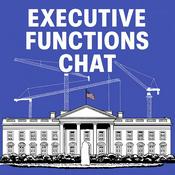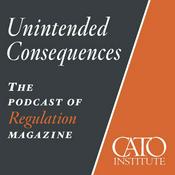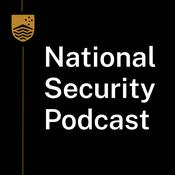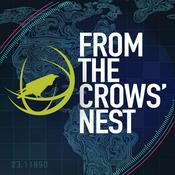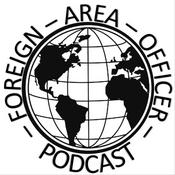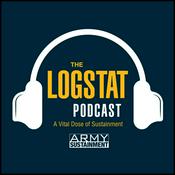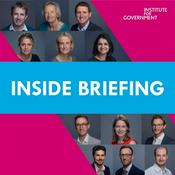151 episodes
- Episode 147 of the Irregular Warfare Podcast examines the past, present, and future of America’s defense industrial base—and why its strength may determine the outcome of the next era of great power competition. Drawing on historical experience and contemporary reforms, the episode argues that American military advantage has long depended on close collaboration between government and industry. From Roosevelt’s wartime mobilization to Cold War breakthroughs in stealth and reconnaissance, U.S. success has repeatedly flowed from its ability to harness commercial innovation and industrial scale. Today, however, that ecosystem faces mounting strain as China expands its manufacturing capacity and defense production at unprecedented speed.
The conversation highlights a central tension: while the United States retains unmatched technological depth—especially in commercial sectors such as artificial intelligence and advanced computing—much of that innovation remains only partially integrated into defense. Regulatory barriers, acquisition culture, and post–Cold War consolidation have narrowed the defense industrial base, limiting the military’s ability to tap the full breadth of American industry. In response, the U.S. Army is experimenting with faster acquisition cycles, commercial partnerships, and modular, software-driven designs that shorten timelines from concept to fielding while preserving the ability to scale production in a crisis.
Finally, the discussion addresses the policy implications of rebuilding industrial strength. Sustained investment, clearer demand signals to industry, and greater flexibility in budgeting and contracting are essential to restoring surge capacity and critical stockpiles. The guests emphasize that the costs of preparation are far lower than the costs of deterrence failure. For practitioners and policymakers alike, the episode highlights a simple but urgent message: preserving America’s military edge requires aligning industrial policy, acquisition reform, and technological innovation with the realities of renewed great power competition.
Dr. Alexander Miller is the Senior Advisor for Science and Technology and Chief Technology Officer to the Chief of Staff of the U.S. Army. He holds a Master’s degree in Systems Engineering from Johns Hopkins University and a Doctorate of Technology from Purdue University’s Polytechnic Institute.
Dr. Seth G. Jones is president of the Defense and Security Department and Harold Brown Chair at the Center for Strategic and International Studies (CSIS). His work focuses on defense strategy, the defense industrial base, and irregular warfare. His book The American Edge: The Military Tech Nexus and the Sources of Great Power Dominance anchors this episode’s discussion.
Ben Jebb and Kyle Atwell host this episode. Please reach out to the Irregular Warfare Podcast team with any questions about the episode or the broader mission of the show.
The Irregular Warfare Podcast is a production of the Irregular Warfare Initiative (IWI). We are a team of volunteers dedicated to bridging the gap between scholars and practitioners in the field of irregular warfare. IWI generates written and audio content, coordinates events for the IW community, and hosts critical thinkers in the field of irregular warfare as IWI fellows. You can follow and engage with us on Facebook, Twitter, Instagram, YouTube, or LinkedIn.
Subscribe to our monthly newsletter for access to our written content, upcoming community events, and other resources. Competitive Intervention, Proxy War, and Military Assistance: Anderson, Eyre, and Kuhlman
2/06/2026 | 55 mins.Description:
Episode 146 examines the impact of external military assistance on civil wars.
Summary
This conversation delves into the complexities of competitive intervention in civil wars, exploring the types of military aid provided, how external support influences conflict dynamics, and implications for practitioners and policymakers. The discussion highlights the prevalence of external interventions, the escalation dynamics involved, and the moral dilemmas faced by intervening states. Our guests emphasize the need for a nuanced understanding of these interventions, particularly in the context of an increasingly multipolar world where we anticipate competitive intervention and proxy wars will increase.
Takeaways
Competitive intervention is characterized by opposing military assistance from different states.
75% of civil wars since WWII have experienced external military assistance. This is very common.
Weapons transfers are the most common form of external support in conflicts.
External aid significantly impacts the duration and dynamics of civil wars.
Competitive interventions are associated with a 50% decline in the likelihood of conflict termination.
Ethnic dynamics can complicate civil war outcomes but do not universally determine conflict duration.
Non-state actors are increasingly involved in providing support in civil conflicts.
The rise of multipolarity may lead to increased competitive interventions.
Escalation dynamics complicate the nature of military support in conflicts. Specifically escalation concerns will lead donors to give enough support to keep the conflict going, but not enough to enable a decisive victory.
Policymakers should consider the moral implications of prolonging conflicts through intervention.
Future conflicts will require a diverse range of military capabilities and strategies.
General (retired) Wayne Eyre served as Chief of the Defence Staff in the Canadian Armed Forces from 2021 to 2024, Canada’s highest-ranking military officer. With more than 40 years of service, he commanded at multiple levels, including operational deployments in Afghanistan and Bosnia. He is currently a Senior Fellow and Visiting Professor at the University of Ottawa.
Dr. Noel Anderson is an Associate Professor in the Department of Political Science at the University of Toronto and author of Wars Without End: Competitive Intervention, Escalation Control, and Protracted Conflict. The book examines why contemporary wars so often resist clear endings. He holds a Ph.D. in Political Science from the Massachusetts Institute of Technology.
Lieutenant Colonel (Dr.) Matthew Kuhlman is a U.S. Army officer, military scholar, and the current Managing Editor at the Irregular Warfare Initiative – where he helps curate written practitioner and scholar insights for the irregular warfare community.
Kyle Atwell is the host for episode 146. Please reach out to him with any questions about the episode or IWI.
The Irregular Warfare Podcast is a production of the Irregular Warfare Initiative (IWI). We are a team of volunteers dedicated to bridging the gap between scholars and practitioners to support the community of irregular warfare professionals. IWI generates written and audio content, coordinates events for the IW community, and hosts critical thinkers in the field of irregular warfare as IWI fellows. You can follow and engage with us on Facebook, Twitter, Instagram, YouTube, or LinkedIn.
Subscribe to our monthly newsletter for (always free!) access to our written content, upcoming community events, and other resources.
All views expressed in this episode are the personal views of the participants and do not represent those of any government agency or of the Empirical Studies of Conflict Project.
Intro music: “Unsilenced” by Ketsa
Outro music: “Launch” by Ketsa
Photo: Cover image generated using AI-assisted digital art tools.- Episode 145 examines the role of foreign fighters in war.
Our guests begin by highlighting the long history of foreign fighters in conflict, from the early United States and the Spanish Civil War of the 1930s to contemporary cases such as the International Legion in Ukraine and the role of foreign fighters in ISIS. The conversation then turns to why individuals risk their lives for others in far away lands, with motivations ranging from financial incentives and ideological commitments to deeply personal reasons. Finally, the discussion concludes by examining the impact foreign fighters have on the battlefield – with the results often being mixed.
Dr. David Malet is an Associate Professor at American University whose research focuses on foreign fighter recruitment, insurgency, and transnational conflict dynamics. He is the author of the book Foreign Fighters: Transnational Identity in Civil Conflicts, a comprehensive study of why and how individuals join wars far from home.
Colin Freeman is a British journalist and former chief foreign correspondent for The Sunday Telegraph. He has reported extensively from conflict zones around the world, including recently in Ukraine. His book The Mad and the Brave: The Untold Story of Ukraine’s Foreign Legion tells the stories of foreign volunteers who joined Ukraine’s defense during the Russo-Ukrainian War.
Kyle Atwell is the host for episode 145. Please reach out to him with any questions about the episode or IWI.
The Irregular Warfare Podcast is a production of the Irregular Warfare Initiative (IWI). We are a team of volunteers dedicated to bridging the gap between scholars and practitioners to support the community of irregular warfare professionals. IWI generates written and audio content, coordinates events for the IW community, and hosts critical thinkers in the field of irregular warfare as IWI fellows. You can follow and engage with us on Facebook, Twitter, Instagram, YouTube, or LinkedIn.
Subscribe to our monthly newsletter for (always free!) access to our written content, upcoming community events, and other resources.
All views expressed in this episode are the personal views of the participants and do not represent those of any government agency or of the Empirical Studies of Conflict Project.
Intro music: “Unsilenced” by Ketsa
Outro music: “Launch” by Ketsa
Illustrative image generated by AI. It does not depict a real individual. - Episode 144 of the Irregular Warfare Podcast continues the Future of War series with a sharp focus on strategic sabotage, indirect action, and deterrence below the threshold of armed conflict. The episode centers on “Special Delivery,” a near-future short story by August Cole set in 2037 amid intensifying U.S.–China competition. The story follows a small U.S. Special Operations team operating near Peru’s Port of Chancay, tasked with sabotaging Chinese-owned critical infrastructure as part of a broader effort to deter a potential blockade of Taiwan. Cole joins Rear Admiral Mark Schafer, Commander of SOCSOUTH, to explore how fiction can illuminate real strategic dilemmas and expose vulnerabilities embedded in global logistics, infrastructure, and access.
The conversation examines how modern sabotage has evolved away from overt kinetic strikes toward a blend of cyber access, physical infiltration, logistics disruption, and information effects—designed less to destroy than to shape adversary decision-making. While emerging technologies like autonomous systems and AI-enabled tools play an important role, both guests emphasize that human skills—adaptability, cultural fluency, and teamwork—remain decisive. The episode closes by grappling with escalation risk, underscoring that strategic sabotage can provide policymakers with powerful options short of war, but only if applied with a deep understanding of adversary perceptions and regional dynamics. - As we close out the year, we're re-releasing our most popular episode of 2025: Ukraine's Hidden Front--The Strategic Impact of Resistance Operations. In this episode, we explore the cost and benefits of Ukrainian partisan activity and what resistance operations mean for Ukraine's broader war aims. As always, thanks for listening, and keep warfare irregular.
More Government podcasts
Trending Government podcasts
About Irregular Warfare Podcast
The Irregular Warfare Podcast explores an important component of war throughout history. Small wars, drone strikes, special operations forces, counterterrorism, proxies—this podcast covers the full range of topics related to irregular war and features in-depth conversations with guests from the military, academia, and the policy community. The podcast is a collaboration between the Modern War Institute at West Point and Princeton University’s Empirical Studies of Conflict Project.
Podcast websiteListen to Irregular Warfare Podcast, The Tara Palmeri Show and many other podcasts from around the world with the radio.net app

Get the free radio.net app
- Stations and podcasts to bookmark
- Stream via Wi-Fi or Bluetooth
- Supports Carplay & Android Auto
- Many other app features
Get the free radio.net app
- Stations and podcasts to bookmark
- Stream via Wi-Fi or Bluetooth
- Supports Carplay & Android Auto
- Many other app features


Irregular Warfare Podcast
Scan code,
download the app,
start listening.
download the app,
start listening.













